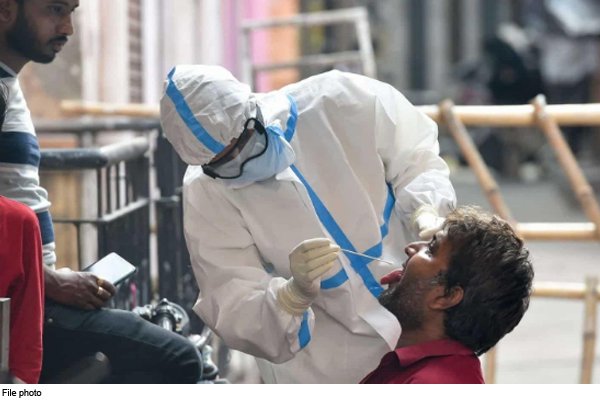This step has been taken in view of the epidemic curve of coronavirus cases in the country. The government has also removed the list of countries “at-risk” for travel to India.
Issuing new guidelines for international arrivals at entry points, including airports, the government said the global and Indian growth trajectory of the COVID-19 pandemic continues with regional variations.
“The constantly changing nature of the virus and the need to monitor the development of SARS-CoV-2 variants (VOCs), of concern, still needs to be kept in mind. The Union Health Ministry guidelines state that the existing guidelines for international arrivals in India are being prepared with a risk-based approach.
“While monitoring the nature and spread of the infection in the country and around the world, cognizance is also taken of the fact that economic activities need to continue non-stop,” it said.
Meanwhile, Union Health Minister Mansukh Mandaviya tweeted, “Demarcation of countries at risk and other countries removed. Accordingly, the need to deliver samples at the port of arrival and wait till the results are received from ‘at risk countries’ have been dispensed with.”
As per the revised guidelines, passengers will have to upload a negative COVID-19 RT-PCR report (test conducted within 72 hours before commencing the journey) or a certificate of completion of the complete primary immunization schedule of COVID-19 vaccination. Passengers will also have to submit a self-declaration form on the “Air Suvidha” online platform.
The government also removed the condition of mandatory seven-day home quarantine after coming to India. However, incoming travelers will have to self-monitor their health for 14 days after entering the country. If the passengers develop signs and symptoms of COVID19 under self-health monitoring, they shall immediately self-isolate and report to their nearest health facility or call the National Helpline Number (1075) / State Helpline Number.
In addition, passengers found to be symptomatic during screening will be immediately isolated and taken to a medical facility as per health protocols. If tested positive, their contacts will be identified and managed as per the prescribed protocol. The guidelines also state that a sub-section (2% of total passengers in flight) will undergo random post-arrival testing at the airport on arrival.
India has also exempted children from testing, following the World Health Organization’s (WHO) advice to exempt children under the age of five from pre-and post-arrival COVID testing. However, if found symptomatic for Covid-19 on arrival or during the self-monitoring period, they will have to undergo tests and be treated as per protocol,” the guidelines state.
According to the Union Health Ministry, India’s Covid curve seems to be flattening. “India reported a peak of 3,47,254 cases on January 21, down from the previous peak of 4,14,188,” said Lav Agarwal, Joint Secretary, Union Health Ministry.
At least 67,084 new coronavirus cases were reported in the last 24 hours. India’s active caseload currently stands at 7,90,789. According to the Union Health Ministry data, active cases account for 1.86% of the total positive cases in the country. India’s cumulative COVID-19 vaccination coverage approached 172 crore on Thursday.

